20 green ideas to make your home beautiful and the planet better.
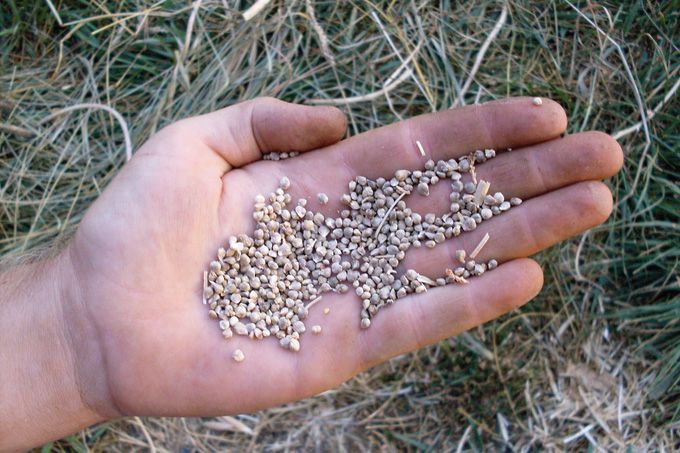 |
Special seeds Adaptive Seeds specializes in rare and resilient seed varieties adapted to the Pacific Northwest. The seeds are grown without chemical fertilizers or pesticides in Sweet Home. Whether you want that heirloom tomato you saw at the farmers’ market or something that grows during our soggy winters, Adaptive Seeds has around 270 varieties to choose from. E.H. Most seeds $3-$6 per packet; adaptiveseeds.com |
|
Paper nor plastic Though the green movement may be gaining steam, the tradition of wrapping gifts in fabric is centuries old. Portland-based LuLu Wraps creates handmade Japanese furoshiki. The wraps come in three sizes and can be used to wrap gifts many times, saving countless rolls of paper. Our favorite way to use the wraps, however, is for wrapping lunches to bring to school or work. If your origami skills are subpar, don’t worry, because the brightly colored fabric wraps come with easy instructions. E.H. $8-$29; luluwraps.com |
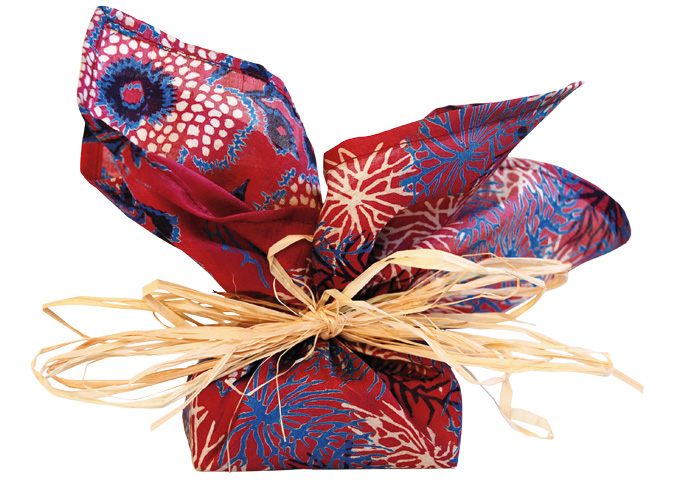 |
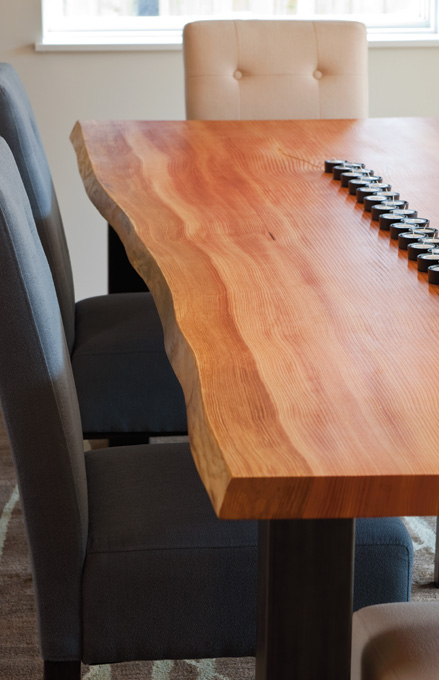 |
Limber timber Help a tree live beyond its ring count. Urban Timberworks gives felled city trees new life as quality furniture (like this table), flooring and other wood products. Homeowners can save trees from the fate of the wood chipper by donating trees of 20-inch diameter or larger. Urban Timberworks offers free site evaluation for feasibility of harvesting. They also sell goods made from trees. Tree hugging doesn’t have to stop when they yell timber. V.M. $5,000; urbantimberworks.com |
|
In sheep’s clothing One of the most important ways to reduce your energy consumption is to insulate your home well. Easy, right? The problem is that much insulation is made out of not very eco-friendly materials. Go green by using a natural, sustainable resource for your insulation, made in Rainier. Oregon Shepherd’s natural wool insulation is naturally green. It takes less than 10 percent of the energy to produce wool insulation than it takes to produce traditional insulation. Also, wool is sustainable, renewable and 100 percent recyclable. Baa! E.H. $74.95 for 25-pound kit; oregonshepherd.com |
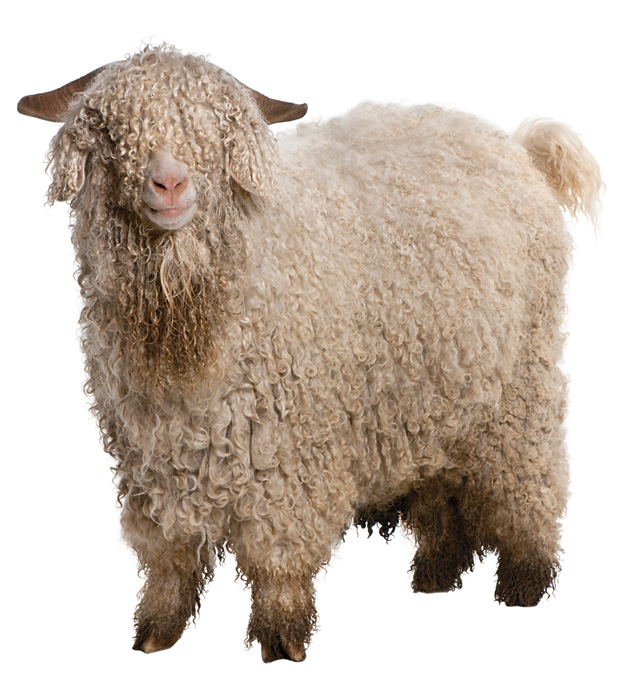 |
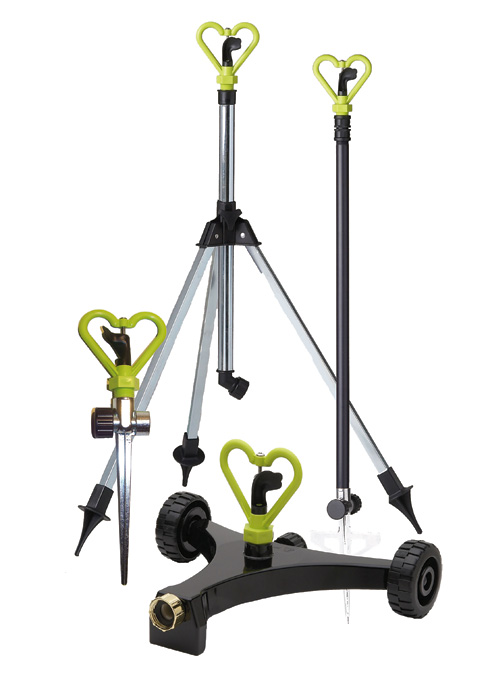 |
Lush lawn Lawn and garden sprinklers are notorious water wasters and thusly expensive. Rainforest Sprinklers use one-third less water than most sprinklers and provide an even application of water to prevent careless runoff. The company also produces sprinklers made of 100 percent recycled plastic. Enjoy a lush yard while leaving some water for the fish. E.H. $10-$50; at seven Oregon locations; |
|
Green thumb Oregon-based Naturalyards makes simple, eye-pleasing garden planters and raised beds. The tool-free kits make it super easy to dip your toes into gardening with little effort. We like the vertical planter, perfect for a bounty crop of strawberries. E.H. $300 as shown, more sizes available; |
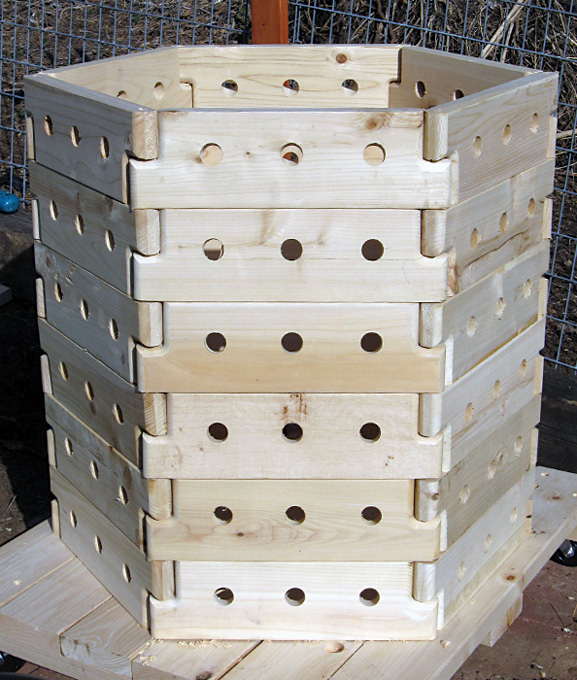 |
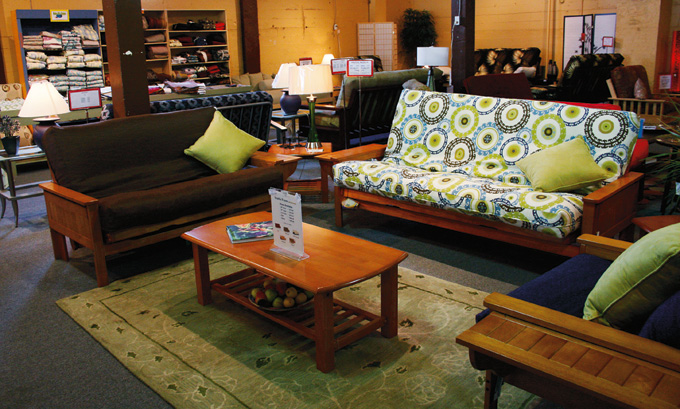 |
Nap naturally A handcrafted futon made of natural materials harvested in a sustainable way — sound impossibly out of your budget? Luckily, Portland is home to Cotton Cloud Natural Beds & Furniture, a store that makes eco-friendly bedding affordable. Since 1981, owner Terri Treat has been making her sumptuous futons. Thirty-plus years and three expanded store locations later, the company sells everything from the largest selection of futon covers in the Portland area to complete bedroom and living room sets. E.H. Cotton futons start at $150; cottoncloudfutons.com |
|
Compact compost As cities in Oregon and nationwide adopt curbside composting, more people are getting behind a home composting system. Whether you trek your kitchen scraps out to a green bin or collect veggie bits and bobs to throw in a compost pile in your garden, the ugly plastic containers on your kitchen counter can be an eyesore. Remedy that with the one-gallon stainless steel compost pail from Kitchen Kaboodle. The lid has charcoal filters to control odor, making the pail an attractive and practical way to conceal kitchen scraps. E.H. $39.95; at five Kitchen Kaboodle locations around Portland; kitchenkaboodle.com |
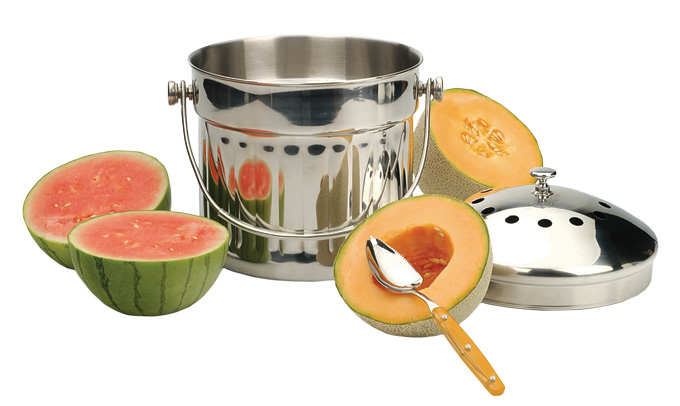 |
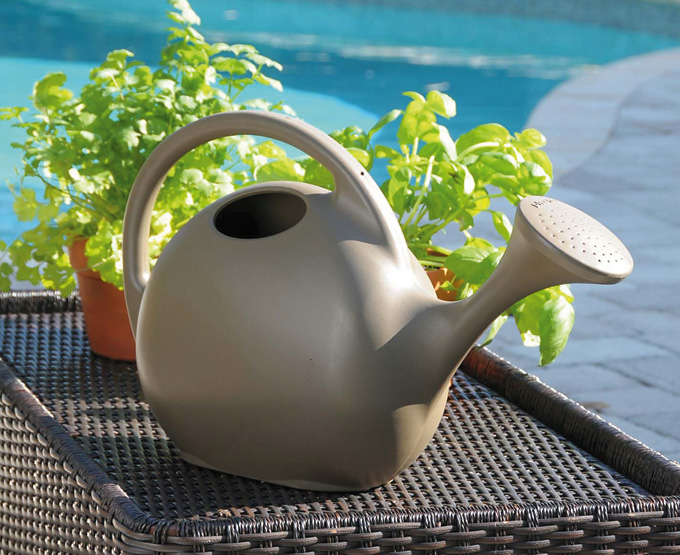 |
Watering can-do Save the world one snack pack at a time. TerraCycle collects snack wrappers and drink pouches from schools and turns them into cool products. The simple design of the 1.75- gallon watering can is as appealing to the eye as it is to the conscience. V.M. About $25; terracycle.com |
|
Scents and sensibility Brook Harvey Taylor was a college student in Eugene in the 1990s when her interest in natural fragrances really blossomed. She and husband Billy Taylor launched Pacifica in Portland. The collection has grown to include home fragrances, soy candles, reed diffusers and beauty products. Treat your nose to a blend of exotic fruits, florals, herbs, spices, woods and resins in fragrances such as Tuscan Blood Orange, Egyptian Bergamot Rose or Tibetan Mountain Temple. The latest additions are Island Vanilla and Indian Coconut Nectar. One percent of proceeds from sales of Island Vanilla products benefit the Oceans Futures Society. V.M. Pacifica soy candle; $6-$16; pacificaperfume.com; Whole Foods Markets, Made in Oregon and other stores |
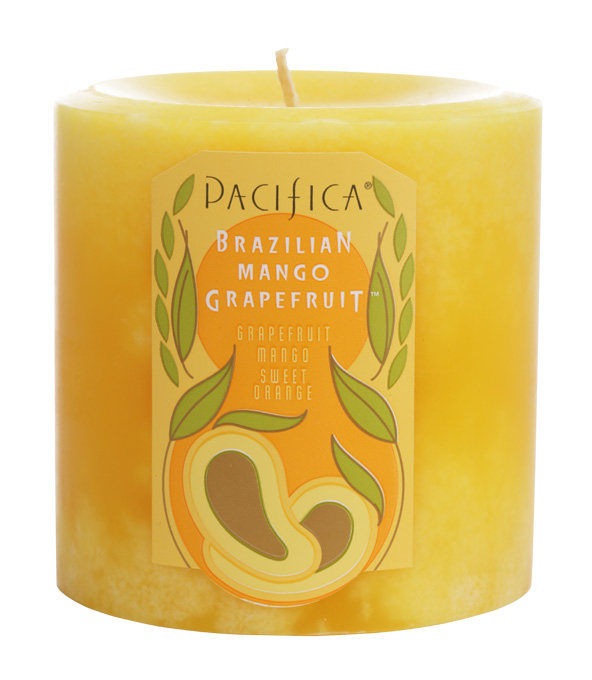 |
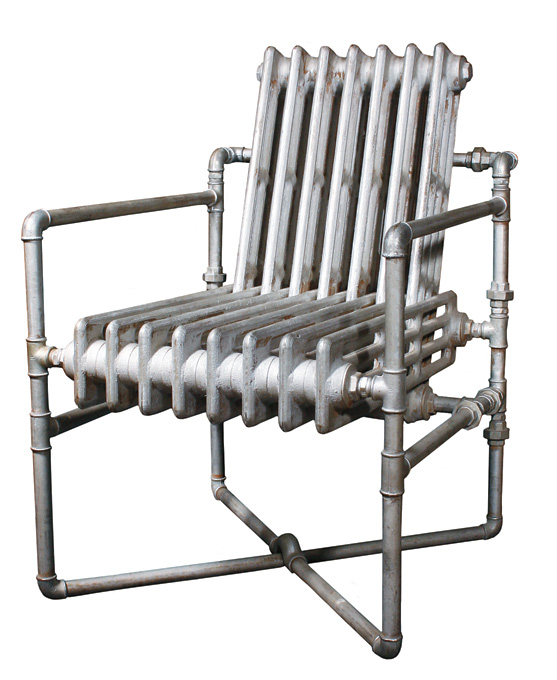 |
Hot seat Pulling up this chair to the table would require some serious muscle mass. Made of cast-off cast-iron radiators by Rudy Jr., this upcycled garden seat is heavy-duty but lighthearted. V.M. $1,298; Anthropologie; anthropologie.com |
|
Counter evidence Made from 100 percent recycled glass chips and cement, IceStone durable surfaces offer a colorful, eco-friendly surface for your house. Available at Green Depot in Portland, the company offers 21 colors to suit your fancy. The low-VOC counters are much better for the environment than mined or engineered stone, and they last a long time since they have twice the strength of marble. E.H. Starting at $145 per square foot, with installation; |
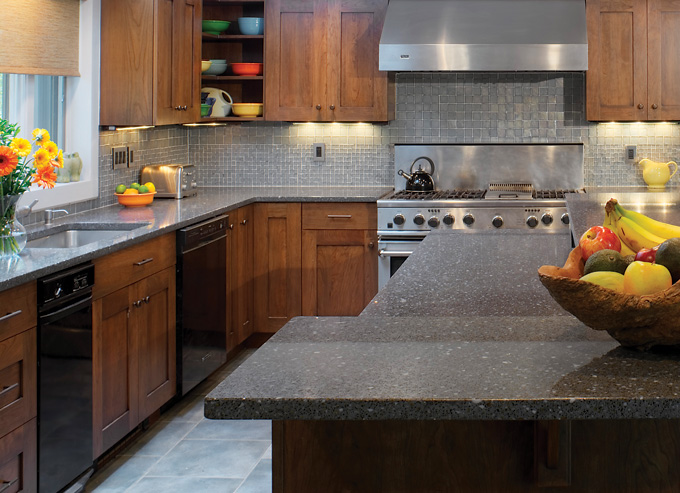 |
|
O, pioneer If the canning jars and candle wax don’t get you in the homesteading spirit, maybe the bearded goats out back will. The Portland Homestead Supply Company is akin to a feed store for urban farmers. The shop carries everything you need to ditch the grid and start a life of self-sufficiency. Get the goods and the information needed to make cheese, brew beer and pickle it Portlandia style. Even if the closest you get to urban homesteading is barbecuing in the backyard, the store is sure to stir your pioneer spirit. V.M. Portland Homestead Supply; homesteadsupplyco.com |
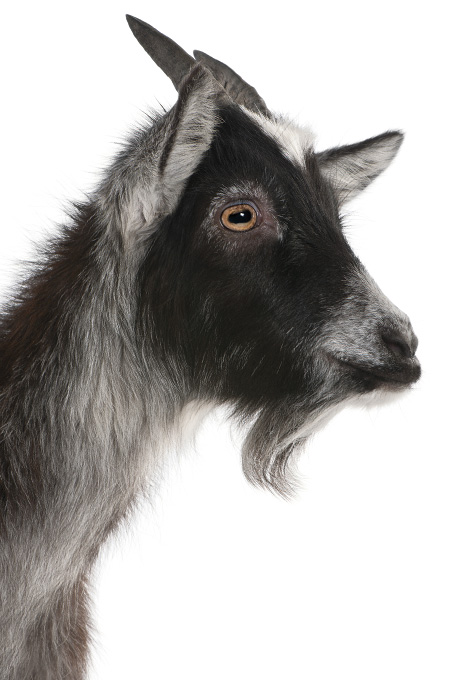 |
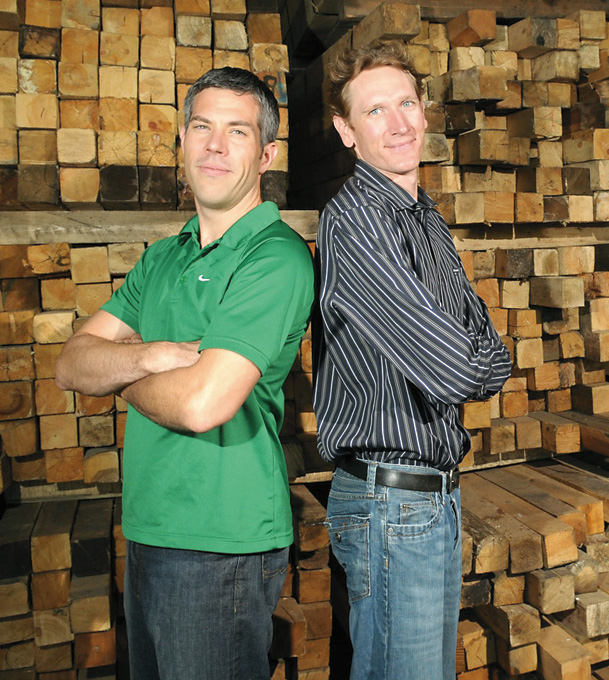 |
Trash to treasure Think of it as ultimate dumpster diving. Wood crates and pallets of goods from all over the world come through the Port of Portland, where they are unloaded by stevedores and unceremoniously dumped into landfills. Longtime friends Pierce Henley and Joe Mitchoff thought this was a shame. They met with a port manager about intercepting wood destined for the trash heap and repurposing it. They founded Viridian Reclaimed Wood in 2004. The lower-quality pieces are remade into new pallets and crates, but the best can become beautiful paneling, tabletops and floors that retail through ECOFloors of Portland and other stores. Top sellers Jakarta Market Blend Rustic and Circle Sawn Antique Oak are $6.75 per square foot. The nature of the reclaimed-wood business means Viridian’s 40,000-square-foot warehouse in North Portland goes from empty to bursting at the seams. “It took a lot of tenacity to get where we are,” he says. V.M. $5-$9 per square foot; viridianwood.com |
|
Got the bug When San Francisco landscape designer Lisa Lee Benjamin worked in England, hedgerows, the closely spaced trees and shrubs that separate roads from fields, fascinated her. “Hedgerows provide habitat in the countryside,” she says. “[It’s] a place where everything, from spiders to birds, has a role in a diverse habitat.” Benjamin wanted to bring the hedgerow idea to urban environments. In 2009 she helped found Urban Hedgerow, which brings artists and landscape designers together to collaborate on projects that create spaces for nature to flourish. “Art plays a role by expanding tolerance,” she says. “In cities, nature is trying to live next to us, but we’re constantly trying to eradicate it.” One way Urban Hedgerow brings nature into the city is through creating insect habitats, such as an insect wall (pictured above) that Benjamin designed in collaboration with San Francisco artist Kevin Smith. The 4-foot-by-6-foot wall panel is made from reclaimed, found and natural materials. “These urban panels pay attention to the city by creating an artistic work, but it’s a work that furthers the idea of a hedgerow in the city by allowing nature to thrive,” she says. Each compartment in the insect wall contains a material, such as sheep’s wool for nesting, thistle heads for bees and ladybugs, wood circles for beetles and spiders, and hemlock stems for cavity nesting. MARGARET FOLEY Insect wall, $4,800; urbanhedgerow.com |
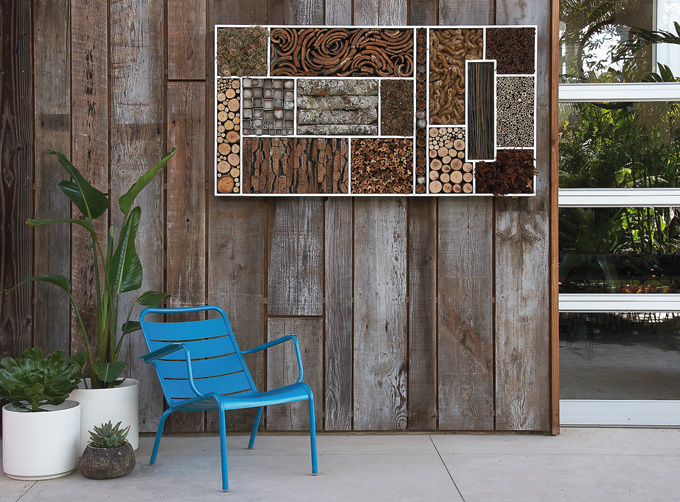 |





